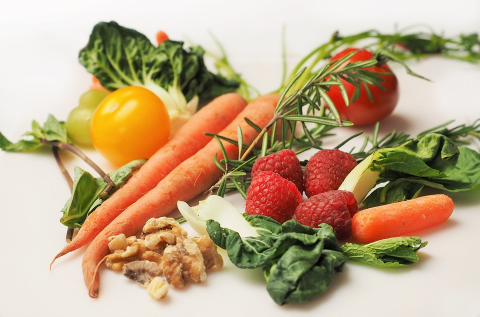
World Food Day was started on October 16, 1945, the day that the United Nation’s Food and Agriculture Organization (FAO) was founded with a purpose of uniting nations in the fight against hunger. Each year on October 16, countries around the world unite to renew their commitment to a world free from hunger and poverty and a world in which everyone can live a healthy life.
This year’s theme in 2018 is “Our actions are our future: a zero-hunger world is possible by 2030”. Wasting less, eating better and adopting a sustainable lifestyle are important for building a world free of hunger. The choices we make today are necessary for a secure future of food.
What can you and your family do to celebrate World Food Day?
- Love your leftovers. If you have leftovers, freeze them for later, or use them as an ingredient in another meal. When you eat at a restaurant, ask for half a portion if you’re not feeling too hungry, or take your leftovers home.
- Adopt a healthy and sustainable diet. Life is fast-paced and trying to fit in preparing nutritious meals can be a challenge. Nutritious meals don't have to be fancy and can be cooked in a quick and easy way while using only a few ingredients. Follow sustainable chefs and bloggers online to learn new recipes or talk to your local farmer to see how they cook their produce at home. For more information on sustainable eating, go to https://www.eatright.org/health/lifestyle/culture-and-traditions/sustainable-eating .
- Buy only what you need. Plan your meals, make a shopping list and stick to it, and avoid impulse purchases. Not only will you waste less food, you’ll also save money.
- Store food wisely. Don’t let your food go to waste. Move older products to the front of your cupboard or refrigerator and new ones to the back. Use airtight containers to keep food fresh in the fridge and assure packages are closed to stop insects from getting in.
- Put your food waste to use. Instead of throwing away your food scraps consider composting them. This way you are giving nutrients back to the soil and reducing your carbon footprint.
- Know where your food comes from. Respect for food is about knowing where our food comes from and what it is made of. Get to know what you’re eating by checking the food labels. Find out what are the unhealthy ingredients and opt for healthier options. Set up a vegetable garden at home or participate in a community garden to have access to nutritious and healthy food, and to learn about how much goes into producing the food we have available.
- Support local food producers. By buying local produce, you support family farmers and small businesses in your community. You also help fight pollution, by reducing delivery distances for trucks and other vehicles.
- Be a conscientious consumer. Once a week, try eating an all-veggie meal (including legumes like lentils, beans, peas and chickpeas) instead of a meat one. Discover some tasty vegetarian recipes and try grains like quinoa. For more information on building healthy vegetarian meals, go to https://www.eatright.org/food/nutrition/vegetarian-and-special-diets/building-a-healthy-vegetarian-meal-myths-and-facts .
Learn more about hunger and food initiatives in New Hampshire through the NH Food Alliance and the Sustainability Institute at UNH at http://www.nhfoodalliance.com/.

